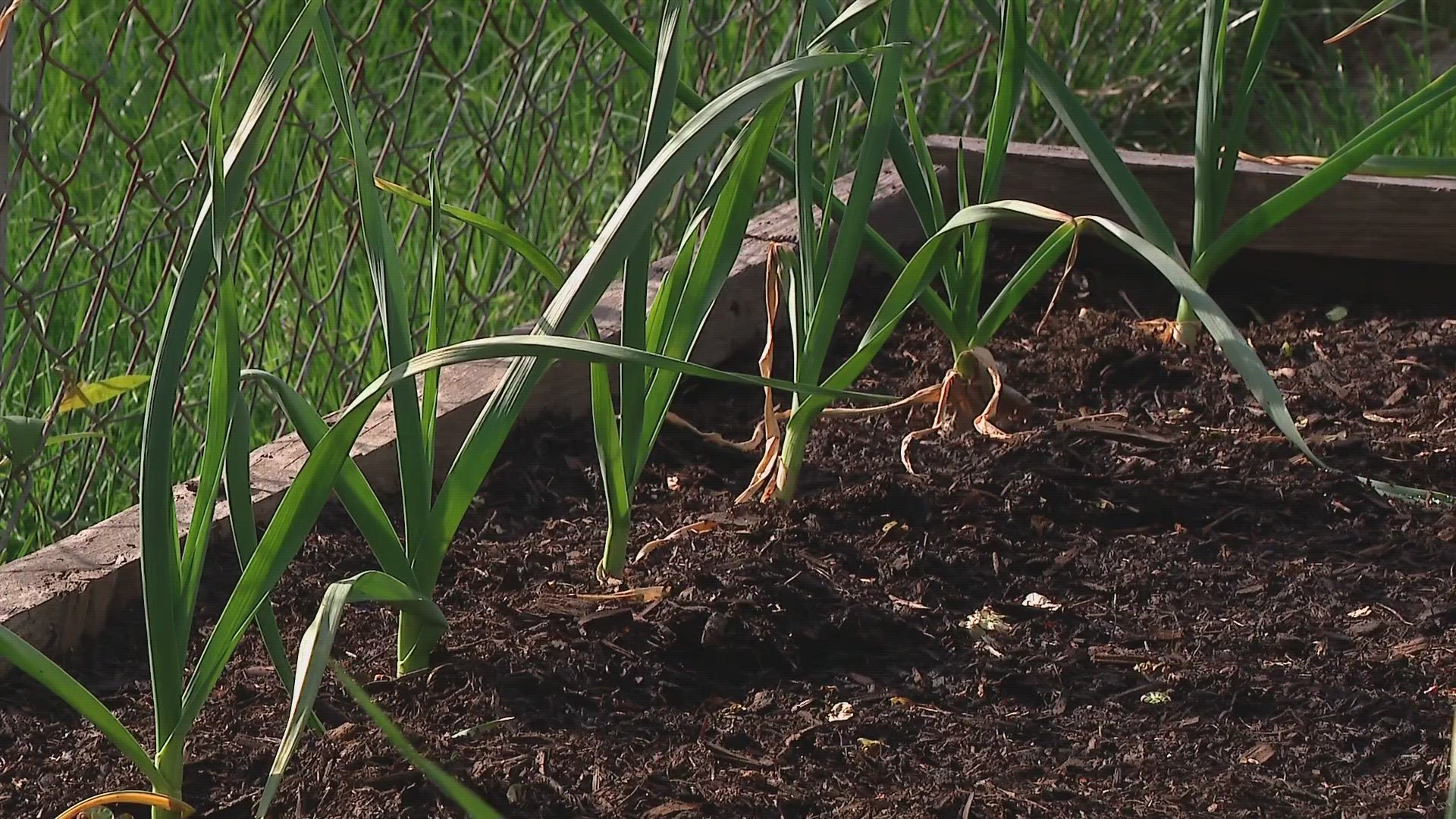COLUMBUS, Ohio — This Earth Day, you can make a difference in your home and community by picking up composting.
Composting is something that already happens in nature. It is an anaerobic process that converts organic materials into a nutrient-rich soil amendment through natural decomposition. This happens naturally, but it is also something that has a lot of benefits in your home and your environment.
According to the Environmental Protection Agency, more food reaches landfills than any other single material in our everyday trash, constituting 24% of municipal solid waste.
Angel Arroyo-Rodriguez, Lead Environmental Specialist - Composting at the Ohio EPA said that composting is a great option to not only limit the amount of waste in landfills, but is a way to help create healthier food options.
Composting can be used to help enhance your lawn and your garden, but there are also other benefits that can save you money.
"You are increasing the compacity for the soil to retain water, so it is more available long-term for the plants," said Arroyo-Rodriguez.
Not only does it reduce your water consumption when tending to your garden and lawn, but it also cuts down on the amount of fertilizer you would use.
You can use your compost to build healthier soil, prevent soil erosion, conserve water, and improve plant growth in your garden and yard.
Composting can be done simply by having a small space on your property. If you do not currently have space outside, you can always sign up for a public compost drop off program (such as the compost exchange) or other local area programs.
To get started you can simply start with a pile in the yard of scraps or invest in a tumbler, plastic bin, wood wire bins, or even construct your own bin.
Once you have a designated space you will want to start by adding what are considered "brown" and "green" materials.
Mike Hogan, OSU Extension Educator and Associate Professor, Agriculture & Natural Resources, said that it is important to have a balance between the materials in your compost.
"Brown materials are things such as leaves, twigs, wood trimmings, wood chips, newspaper, and cardboard," said Hogan.
These materials are sources of carbon and will make up the bulk of your compost, which will provide food for microorganisms to consume and digest.
Next, you will want to add "green" materials to your garden, which is where your food waste will go.
"You will want to balance that brown mixture with materials like your kitchen scraps, grass trimmings, green leaves, etc.," said Hogan.
Asides from the materials, you will also want to make sure that your compost pile has oxygen and water.
"We want to make sure that in the center of the pile that it is heating up and moisture is needed for that," said Hogan.
During a dry stretch of weather, you will want to add some water to your compost and turn the mixture once every 1 to 2 weeks. The combined materials should have the consistency of a wrung-out sponge.
You will want to turn your compost to ensure the mixture is decomposing. Adding enough browns and turning your compost will ensure proper air circulation.
If the pile has a bad odor, it may be too wet or need more air circulation. Add in more brown material to the pile and turn it.
Compost will then be ready to use within 4-6 weeks if maintained properly. Maintaining a two to three parts brown material to one-part green material will help keep your compost healthy.
There are, however, several things that should NOT be added to your compost pile:
- Meat, fish and bones
- Cheese and dairy products
- Pet waste and cat litter
- Produce stickers
- Fats, oils and greases
- Glossy paper
- Treated or painted wood
- Aggressive weeds
- Diseased plants
- Dryer lint
- Herbicide treated plants
- Cooked food
- Compostable food service ware and compostable bags
After several weeks, your compost will have a dark, loose and crumbly consistency and smell like fresh soil. Most, if not all of the materials that are in your pile will now be decomposed. Sifting through your compost will also help to filter out some of the materials that didn't break down.
Once you add the compost to your garden or lawn, you are now reaping the benefits of composting!
For more information on how you can start composting today, please visit the Ohio EPA's website.

